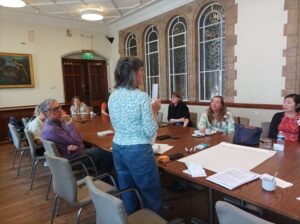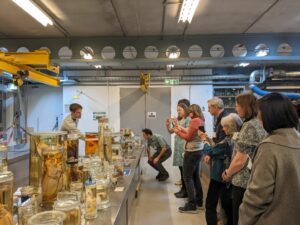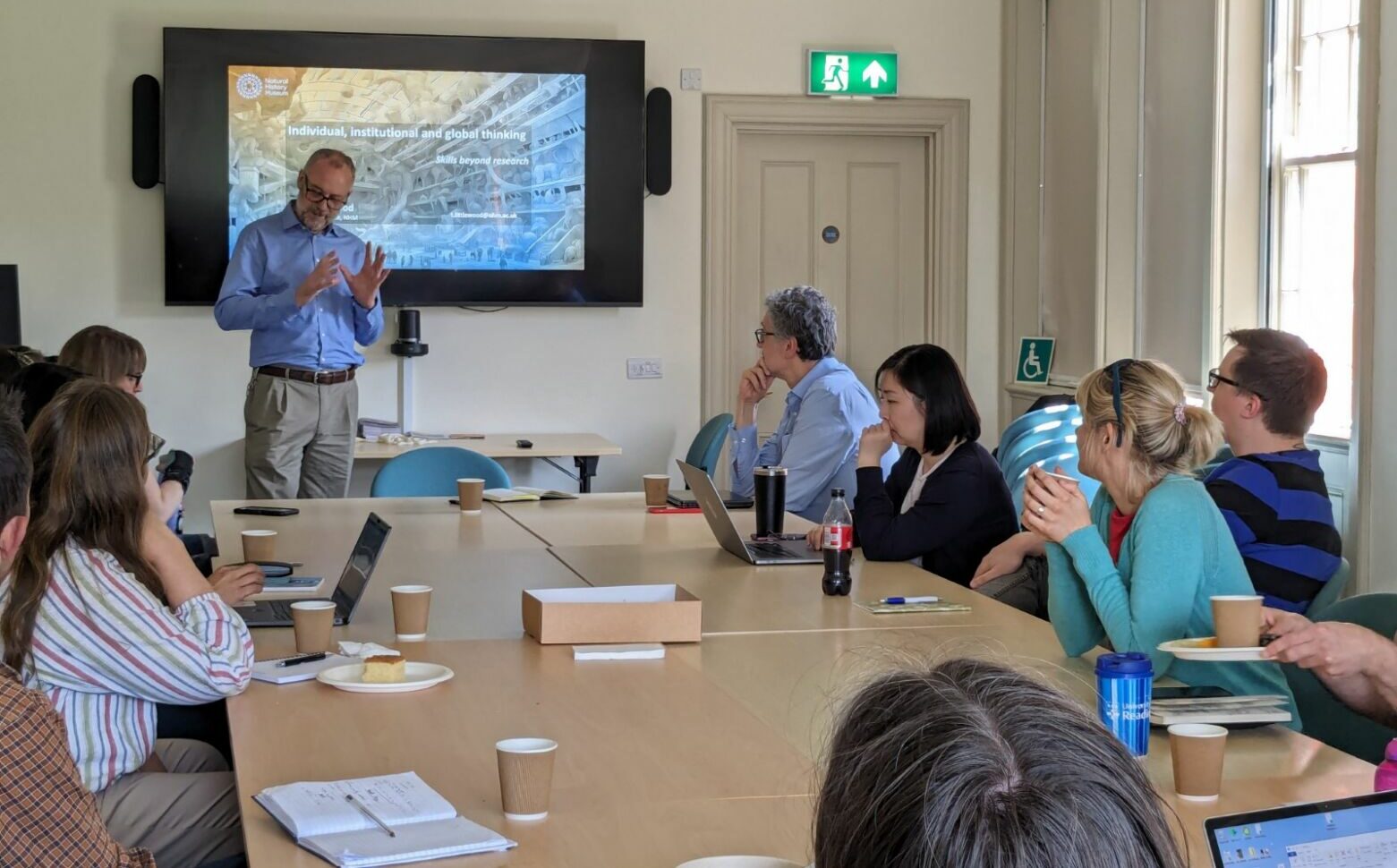The Partnership series of seminars on Global Environmental Challenges was paired with a concurrent set of masterclasses which aimed to catalyse and support collaborative, interdisciplinary research. The masterclasses were led by the seminar presenters (and members of their research teams in some cases) and were attended by 18 researchers and collections staff from the two institutions.
 Increasing numbers of interdisciplinary research calls are available which require expertise from a range of disciplines, and the implementation of this series was supported by leadership teams across both institutions who recognised a need to support the development of their research-active staff. This opportunity focused specifically on increasing our academics’ understanding of what it takes to lead complex cross-disciplinary, multi-institutional projects.
Increasing numbers of interdisciplinary research calls are available which require expertise from a range of disciplines, and the implementation of this series was supported by leadership teams across both institutions who recognised a need to support the development of their research-active staff. This opportunity focused specifically on increasing our academics’ understanding of what it takes to lead complex cross-disciplinary, multi-institutional projects.
The overall goal of these activities was to directly address partnership priority areas, aiming to build capacity and leadership skills in mid-career and senior academics who might lead large research funding proposals and projects.
 The masterclasses focussed on logistics, methodology, and lessons learned by the presenters, who have successfully designed and delivered large-scale, interdisciplinary projects. Sharing experience is invaluable for research development as well as addressing global concerns, and feedback from masterclass attendees was overwhelmingly positive. Attendees confirmed that they gained confidence, inspiration, time to think more broadly and widen their networks, and enjoyed learning from senior colleagues, and that they have applied this practically by reaching out more and aiming to gather different views when designing research.
The masterclasses focussed on logistics, methodology, and lessons learned by the presenters, who have successfully designed and delivered large-scale, interdisciplinary projects. Sharing experience is invaluable for research development as well as addressing global concerns, and feedback from masterclass attendees was overwhelmingly positive. Attendees confirmed that they gained confidence, inspiration, time to think more broadly and widen their networks, and enjoyed learning from senior colleagues, and that they have applied this practically by reaching out more and aiming to gather different views when designing research.

